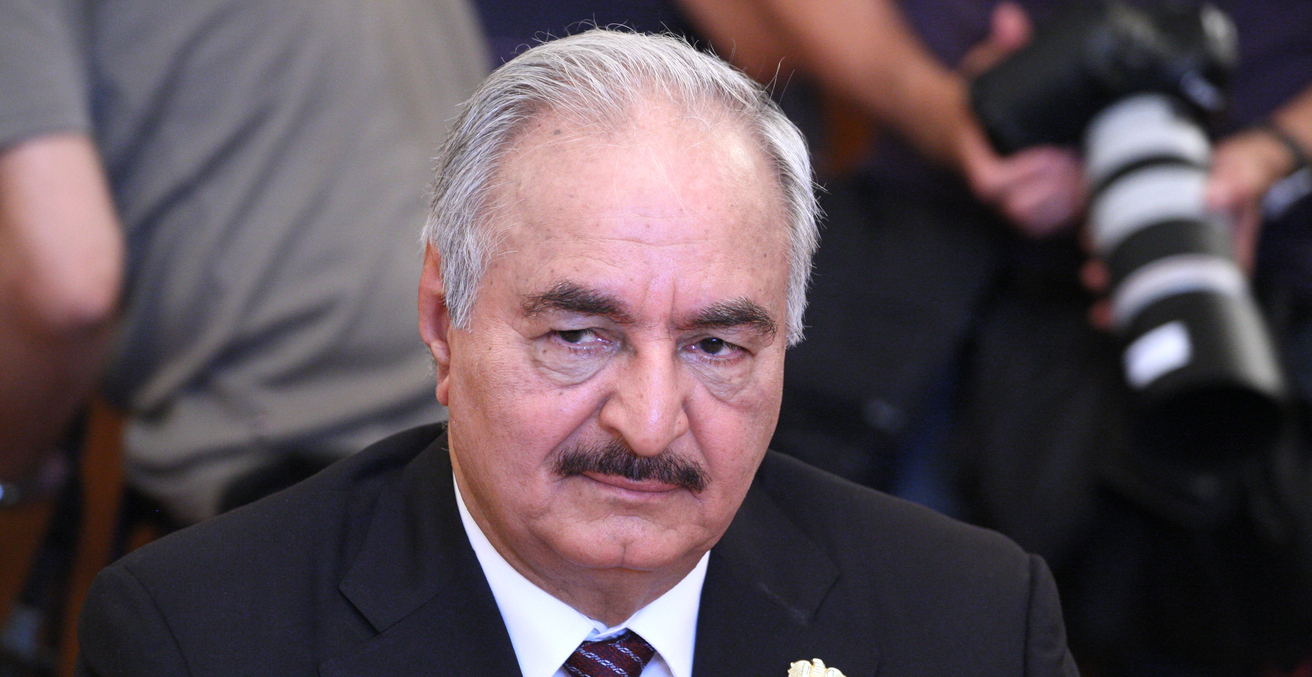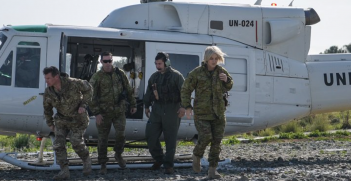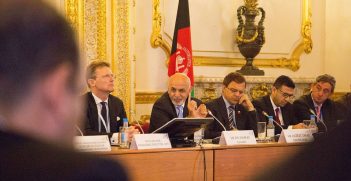Libya’s Elections Conundrum

The Libyan elections have been delayed yet again. Given the challenges facing the nation, perhaps it’s for the best.
Libya’s presidential and parliamentary elections were scheduled to be held on 24 December last year. However, for the third time in three years, the elections have been abandoned. Although the UN Special Adviser on Libya, Stephanie Williams, has recommended an election be held in June 2022 and warned that failure to hold elections could see a resurgence of Islamic State in the country, the parliament, based in Benghazi, has refused to set a date.
The cancellation of the December elections should come as no surprise. The lead-up was marred by disputes over the eligibility of various candidates, and even over the elections’ legality and basic rules governing their conduct. In such an environment, the cancellation may not be such a bad thing.
Controversial candidates
Ninety-eight individuals had put their names forward for the December presidential election. Most had no chance of success, having only narrow regional or tribal bases of support. Instead, many were staking a claim for a place in a future government.
Three names stood out, however. Saif Al-Islam, the son of Muammar Qaddafi, was nominated despite a Libyan court’s warrant for his arrest for war crimes and another from the International Criminal Court (ICC) for crimes against humanity. Self-styled field marshal Khalifa Haftar, who leads the Libyan National Army (LNA) and who is also of interest to the ICC for similar reasons, registered as a candidate. And, despite having promised not to run in the elections, Abd Al-Hamid Dbeibah, the prime minister of the Tripoli-based interim Government of National Unity (GNU) put his name forward too. It is hard to imagine a less worthy group of people vying for national leadership.
Challenges of elections
The abandonment of the elections highlights the tragedy of Libya’s post-Qaddafi experience, but also flags the danger of elections in such a divided country. Libya’s first post-Qaddafi elections in 2012 were enthusiastically supported, with over 60 percent of eligible voters participating. Since then, the country’s political class has been unable to agree on a national vision, which has prevented progress towards a stable political system in Libya.
The UN has been active in trying to reconcile the various divisions in the country. It has set elections of a new president and parliament as priorities, vital to the efforts to end the violence that has plagued Libya since the overthrow of Qaddafi. The UN-supported Government of National Accord sought to bring the main parties together but was sabotaged by Haftar’s attempt to gain power by force. With Haftar’s defeat, the UN endorsed the GNU, whose task was to prepare for elections and the establishment of a legitimate national government, after which a constitution was to be drafted. The continued abandonment of the elections is, therefore, a major setback to UN efforts.
However, this may prove to be a blessing in disguise. It seems clear that none of the leading candidates are willing to contemplate an electoral result that is not in their favour. Dbeibah, whose mandate ended in December, has demanded that a constitution be agreed before “real” elections are held, and Haftar is likely to reject an unfavourable result and fall back to his LNA stronghold in Benghazi.
It has been demonstrated in many countries that elections are not a panacea for societies facing civil collapse. We have seen in the US and Italy, for example, how contested elections have served to deepen divisions rather than bring people together. Beyond the short-sightedness of the political class, the challenges threatening to undermine any Libyan election process are monumental.
The country still bears the scars of the brutal Italian occupation and the intense fighting during World War II. It emerged as an independent state only in 1951, when the provinces of Tripolitania, Fezzan, and Cyrenaica were brought together under King Idris. The new state lacked an educated and skilled workforce and was effectively a puppet of the US until Qaddafi took power in 1969. Qaddafi did much to develop the education and health systems in the country, but his confrontation with the West and his determination to hold onto power meant that mature political processes did not develop. Instead, tribalism and local loyalties, with their winner-take-all attitude, have dominated Libyans’ approach to politics.
Outside meddling
Outside powers have exploited the divisions created by the tribalised nature of Libya. The Government of National Accord and its successor, the GNU, have attempted to be inclusive of differing political views, including Islamists. Countries like Egypt and the UAE have used this apparent sympathy for the Moslem Brotherhood as a justification for supporting Haftar in his attempts to overthrow the interim government. While officially supporting the UN initiative, Russia has despatched its Wagner mercenary group to support Haftar. Similarly, France has played a duplicitous role — supporting both the interim government and Haftar.
Meanwhile, Turkey and Qatar have supported the government, reflecting their pro-Brotherhood positions. Turkey, which has ambitions to dominate maritime borders and energy resources in the eastern Mediterranean, has despatched troops and Syrian mercenaries to support the GNU. The UN estimates there are 20,000 mercenaries in Libya supporting the various groups. Their removal must be a prerequisite for any serious settlement of the country’s problems.
In addition, outsiders have liberally provided weapons to the various militia groups across the country, creating a situation where the government lacks the capacity to provide security for its citizens. Tripoli, the capital, is controlled by numerous small but well-armed militia groups, and the government must negotiate with them over major policy decisions.
To add to its problems, Libya is a major conduit for asylum seekers trying to access Europe. According to Human Rights Watch, between January and September 2021, Libyan authorities intercepted over 27,000 people at sea and returned them to Libya, where they face unacceptable detention conditions. The pressure of the asylum seeker problem on the Libyan authorities is immense.
Consensus lacking
The absence of an agreed framework or basic principles for a constitution serve as an indicator of the depth of the divisions in Libyan society. Though a new government may produce one, for now questions such as whether the country is to be unitary, federal, or a variation of the two approaches are deeply divisive and unresolved. Underlying these concerns are the country’s energy resources and how the wealth they produce is to be distributed.
In such a volatile environment, elections that are challenged by the leading candidates could be more damaging to Libya’s long-term prospects than their failure to take place. Until the major powers agree that a negotiated solution to Libya’s chaos is in their interests, there is little incentive for Libyan politicians to compromise in search of a lasting structure for the country. At the present time, there are no signs that those powers see any need to change their approaches.
Dr Anthony Billingsley is Adjunct Senior Lecturer in International Relations at the University of NSW. Before that he served in the Department of Foreign Affairs and Trade and in the Office of National Assessments.
This article is published under a Creative Commons Licence and may be republished with attribution.





